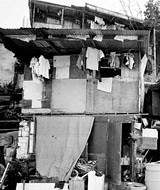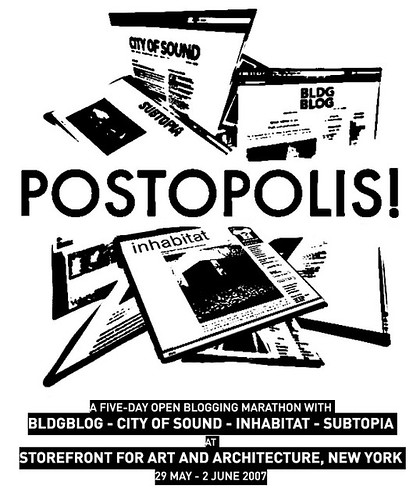Humanitarian Colonialism

Touted as a "preventive medicine" model for the way the 'War on Terror' should be fought, the American Military has boasted "waging peace" in eastern Africa through its Combined Joint Task Force - 'Horn of Africa' project, which claims to have a lesser reliance on machine guns and frag grenades than it does on the old hammer and nail for its success. Instead of combing villages with all-night patrols and kicking down doors in search of suspected terrorists, this unit has been busy building schools and clinics, digging wells, building bridges and basic infrastructural needs for villages that lie in the greater "ungoverned" areas surrounding war torn Somalia, an area seen as potentially becoming a fertile grounds for militant extremism as instability continues to froth in the region.
In 2002, more than 1,500 US troops were sent to the former French colony of Djibouti, which has long been a strategic link between Africa and the Middle East for oil and trade. Their mission has been to weed out the spread of Al Qaeda in East Africa, having experienced numerous terrorist attacks in recent years, and seemingly fallen prey to a rising tide of jihadi influence. The U.S. fears the potential of a united extremist front creeping up between Yemen, Eritrea, Ethiopia, Sudan, Kenya and Uganda. However, today, the operation has evolved out of a military one and into a more Peace Core approach to real community building. Major General Timothy F. Ghormley oversees the deployment of this sort of "voluntary military urbanism" effort as a way to drain any terrorist recruiting wells, safe havens, and instead irrigate the anti-western landscape with a good-willed American brand of missionary-style civil-engineering. Sort of like a humanitarian colonialism, I suppose. Or doin' the superpower squat, you might call it.
While the program has built a noble foundation of rural amenities for villages desperately in need, critics have pointed out this type of good American image-building in the outer lying areas does nothing to address the roots of fundamentalist extremism harboring at the core of Somalia. Some claim it is nothing other than a PR stunt while American soldiers there protect certain oil interests from growing instability, cozying up to the future oil barons of the region. Others contend, that such an effort would not be permitted by the U.S. if it were being done so the other way around. Imagine if Al Qaeda had beaten us there, and were already conducting their own humanitarian urbanism projects to win over the tolerance of the locals. Maybe that is what they have been doing all along. But what if, theoretically, a group like Hamas (now officially Palestine's ruling party) or, if even a lesser extreme group had taken to building schools and healthcare clinics in deprived Latin American areas in order to gain favorability with the people there, (fanning an anti-Americanism), would the U.S. respect that as a humanitarian action, or merely an architectural tactic for spreading terrorist propoganda? Wouldn't it be seen as a direct occupational move disguised through a type of militant activism to undermine our stability?
Also see:
Subtopia: We Build – We Fight
In the media:
To fight Al Qaeda, US troops in Africa build schools instead
U.S. Servicemembers ‘Waging Peace’ on Horn of Africa
NPR: Waging Peace in War on Terror
A quiet battle against militants in ‘Horn’







1 Comments:
hi mini-vinnie-me,
"One could well argue that building needed infra-struture - (schools etc) is a good thing and does actually go to the root of many of the problems the world faces."
That is the argument they are making, and it could be a valid one. I have no idea, this project in the Horn could be perfectly noble, worthwhile, and effective. From this vanatge, I really can't make a qualified judgement. But I was just trying to play devil's advocate. Especially in light of Rummy's blueprints for an escalated infowars of propoganda- making, media-hijack and story planting, etc. etc.
I think you are right, humanitarian aid is a geopolitical weapon, can be a gentrifying strategy, the disaster-industrial-complex is alive and kicking, and the Red Cross has all but un-bloodied hands when it comes to relief org corruption. I think we need to keep skeptical eyes on even our most considerable humanitarian efforts, which often times look to help victims last if there is profit or political standing to be gained.
thanks for reading and offering your thoughts. please keep it up!
bryan
Post a Comment
<< Home